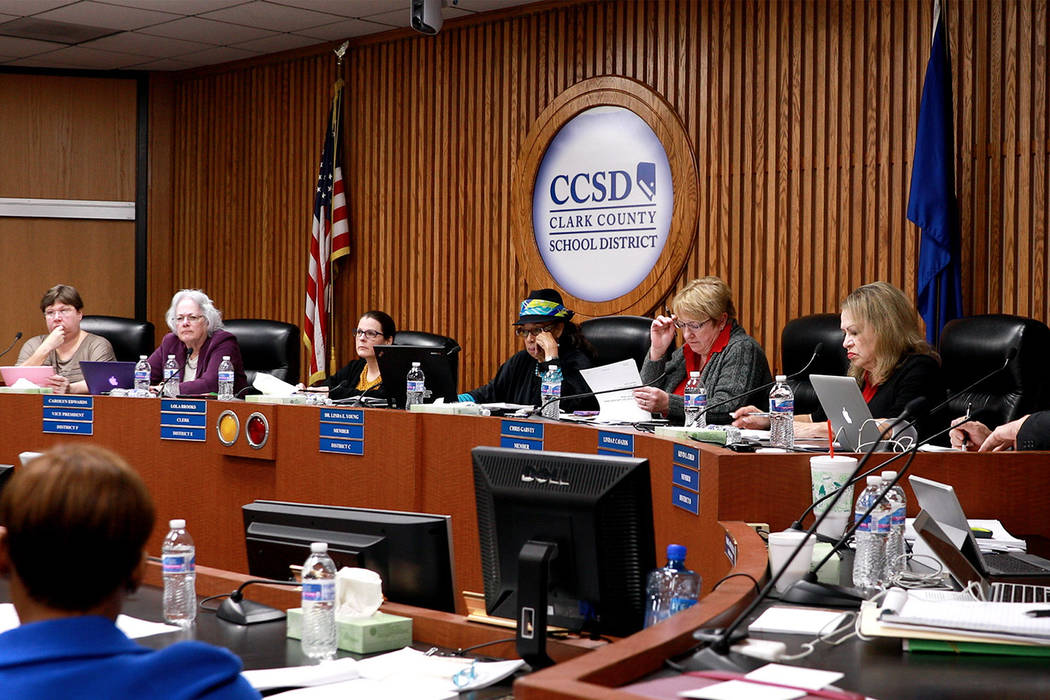Clark County schools whistleblowers have costly legal legacy

Hidden cameras in school. Wasted money. An overcrowded classroom that poses a fire hazard.
These are a few issues that Clark County School District employees decided to bring to the attention of their superiors or authorities.
They’ve also cost taxpayers millions of dollars.
Why? Because these whistleblowers claimed that they were retaliated against for bringing their concerns forward. In response, they filed lawsuits that dragged on for years.
Take the latest case as an example. Elena Rodriguez sued the district in 2012, saying she was demoted for bringing attention to hidden cameras at the now-defunct Academy for Individualized Study High School. After an exhausting back-and-forth battle that went to the federal Court of Appeals, she received a $250,000 settlement on Thursday.
The real kick in the teeth: The School Board could have settled the lawsuit for $160,000 in 2016 but voted against it.
The legal cost in outside attorney’s fees: $445,745 (and that’s only from 2012 through February, according to district records).
Rodriguez wasn’t the first whistleblower to ding the district, and she may not be the last. When it comes to CCSD whistleblowers, history has sadly repeated itself.
In 1992, teacher Trudi Lytle had issues with a special program at Marion Earl Elementary, concerns that she shared with legislators and that were later leaked to the media. After she was fired, Lytle sued and won $135,000 in damages.
But the saga didn’t end there. Lytle claimed she was retaliated against upon her return to the school.
One day, she said, she went to her mailbox and found an article about a teacher whose body was found in a dumpster. So she sued again, this time winning more than $400,000 — a $75,000 settlement plus her attorney’s fees.
The district’s cost in outside legal fees for the second lawsuit: $1.1 million.
Then there’s Kelly Verna, who taught at Burkholder Middle School in the 1990s. She thought her overcrowded classroom was a fire hazard, so she called the fire department, which issued a citation for fire code violations.
Verna claimed she was retaliated against with reprimands and termination, according to a 2001 District Court complaint. A confusing flurry of lawsuits that followed ultimately cost the district roughly $313,253 in outside attorney’s fees, according to district records. Verna received $70,000.
Anyone seeing a pattern here?
The district declined to make new general counsel Eleissa Lavelle or Superintendent Jesus Jara available to discuss the matter but said the district complies with applicable state and federal law on whistleblowers.
Granted, some employees may see the district as a money pit that will pay out if they sue. Those people may not have good cause to go to court.
And it’s not wise for the district to agree to a monetary settlement when it believes it is in the right.
But clearly some mistakes were made in the cases outlined here — and potentially in others.
Meanwhile, Rodriguez is ending a battle that she said has caused her financial and mental distress. Many people who’ve sued the district never wanted to take the legal route, she argued.
“If it had been fixed at the level we wanted, which was the grievance level … there would’ve never been a lawsuit,” she said. “There’s been so much waste of taxpayers’ money.”
Contact Amelia Pak-Harvey at apak-harvey@reviewjournal.com or 702-383-4630. Follow @AmeliaPakHarvey on Twitter. On Education appears every other Saturday.